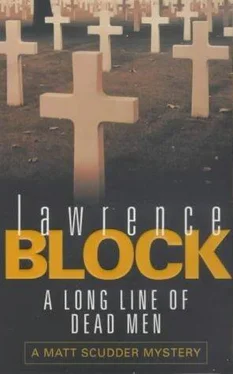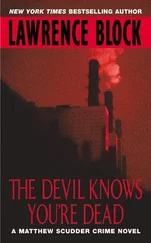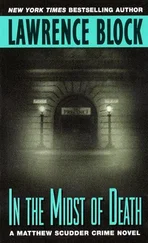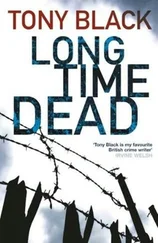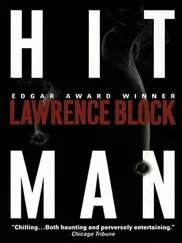Lawrence Block - A Long Line of Dead Men
Здесь есть возможность читать онлайн «Lawrence Block - A Long Line of Dead Men» весь текст электронной книги совершенно бесплатно (целиком полную версию без сокращений). В некоторых случаях можно слушать аудио, скачать через торрент в формате fb2 и присутствует краткое содержание. Жанр: Триллер, на английском языке. Описание произведения, (предисловие) а так же отзывы посетителей доступны на портале библиотеки ЛибКат.
- Название:A Long Line of Dead Men
- Автор:
- Жанр:
- Год:неизвестен
- ISBN:нет данных
- Рейтинг книги:5 / 5. Голосов: 1
-
Избранное:Добавить в избранное
- Отзывы:
-
Ваша оценка:
- 100
- 1
- 2
- 3
- 4
- 5
A Long Line of Dead Men: краткое содержание, описание и аннотация
Предлагаем к чтению аннотацию, описание, краткое содержание или предисловие (зависит от того, что написал сам автор книги «A Long Line of Dead Men»). Если вы не нашли необходимую информацию о книге — напишите в комментариях, мы постараемся отыскать её.
A Long Line of Dead Men — читать онлайн бесплатно полную книгу (весь текст) целиком
Ниже представлен текст книги, разбитый по страницам. Система сохранения места последней прочитанной страницы, позволяет с удобством читать онлайн бесплатно книгу «A Long Line of Dead Men», без необходимости каждый раз заново искать на чём Вы остановились. Поставьте закладку, и сможете в любой момент перейти на страницу, на которой закончили чтение.
Интервал:
Закладка:
"He does these village scenes in oil on masonite," she said, "and they have a nice folk-art look to them, but they left me underwhelmed. Maybe I've seen too much of that kind of thing. Or maybe he has, because that's the feeling I got, that his source of inspiration wasn't his own childhood memories as much as it was the work of other artists he's been exposed to." She made a face. "But that's New York, isn't it? He's never taken a class or sold a painting, but he knows to bring slides. Who ever heard of a folk artist with slides? I bet you don't get that crap in Appalachia."
"Don't be so sure."
"You're probably right. Anyway, I told him I'd keep his name on file. In other words, don't call us. I don't know, maybe he's the long-lost bastard son of Grandma Moses and Howard Finster, and I just blew the chance of a lifetime. But I have to go with my instincts, don't you think?"
They had served her well over the years. When we met I was a cop with a brand-new gold shield in my pocket and a wife and two sons in Syosset, and she was a young call girl, bright and funny and beautiful. We made each other happy for a few years, and then I drank my way out of my marriage and the police department and we pretty much lost track of each other. She went on doing what she'd been doing, saving her money and investing in real estate, keeping fit at the health club, stretching her mind in night school.
A couple of years ago circumstances threw us together again, and what we'd had was still there, stronger than ever and richer for the years we'd lived through. At first she went on seeing clients and we both pretended that was okay, but of course it wasn't, and eventually I bit the bullet and said so and she admitted she'd already put herself out of business.
We kept inching closer and closer to marriage. Last April she'd sold her old place on East Fiftieth and picked out an apartment in the Parc Vendôme and we'd moved in together. It was her money that bought the place and I'd refused to let her put my name on the deed.
I paid the monthly maintenance on the apartment and picked up the checks when we went out to dinner. She covered the household expenses. Eventually we would put all our money together, but we hadn't gotten around to that yet.
Eventually we would get married, too, and I wasn't sure why it was taking us so long. We kept not quite setting a date. We kept letting it slide.
Meanwhile, she had opened a gallery. First she'd gone to work at one on Madison Avenue with the intention of learning the business. She had an argument with the woman who ran the place and quit after two months, then got a similar job downtown on Spring Street. She didn't much care for the artwork in either establishment; the photo-realists at the uptown gallery struck her as sterile, while she saw the commercial can-vases at the SoHo gallery as clicheád and cloying, a high-ticket equivalent of Holiday Inn seascapes and bullfighters.
More to the point, she found the business itself unpleasant, the snobbery, the petty jealousies, the relentless courting of investors and corporate collectors. "I thought I quit prostitution," she said one night, "and here I am pimping for a bunch of bad painters. I don't get it." She went in the following morning and gave notice.
What she wanted, she decided, was a sort of cross between a gallery and a curiosity shop. She'd stock it with things she liked, and she'd try to sell them to people who were looking for something to hang on the wall, or place on the coffee table. She had a good eye, everyone told her that, and she'd taken more courses over the years at Hunter and NYU and the New School than your average art historian, so why shouldn't she take her best shot?
It turned out to be easy to get started. There were a lot of vacant storefronts in the neighborhood that season, and she checked them all out and charmed the owner of a building on Ninth and Fifty-fifth into giving her a good lease at a reasonable rent. Over the years she'd packed a locker in an Eleventh Avenue warehouse with things she'd bought and tired of; the two of us went through it and filled the back of a borrowed station wagon with prints and canvases, and that gave her enough stock to open.
Toward the end of her first month of operation she paid a second visit to the Matisse show at the Museum of Modern Art and came back wide-eyed. "It's an exalting experience," she said, "even more than the first time, and I was completely blown away, but you know what? I realized something. Some of those early paintings, the portraits and still lifes. If you take them entirely out of context, and if you forget that they happened to be painted by a genius, you'd think you were looking at something out of a thrift shop."
"I see what you mean," I said, "but isn't that a little like looking at a Jackson Pollock and saying, 'My kid could do this'?"
"No," she said. "Because I'm not knocking Matisse. I'm putting in a word for the anonymous unheralded amateur."
"What do you mean?"
"I mean context is everything," she said.
The next day she beeped TJ and hired him to mind the store while she hit every thrift shop she could get to. By the end of the week she had covered most of Manhattan, sorting through hundreds and hundreds of paintings and buying almost thirty, at an average price of $8.75. She lined them up and asked me what I thought. I told her I didn't think Matisse had anything to worry about.
"I think they're great," she insisted. "They're not necessarily good, but they're great."
She picked out her six favorites and had them framed in simple gallery-style black frames. She sold two the first week, one for $300 and one for $450. "See?" she said, triumphant. "Stuff 'em in a bin at the Salvation Army at ten bucks apiece and they're thrift-shop art that nobody looks at twice. Treat them with respect and price them at three to five hundred and they're folk art, and people think they're a steal. I had a woman in just before closing who fell in love with the desert sunset. 'But this looks like paint-by-number,' she said. 'That's just what it is,' I told her. 'It was the artist's favorite medium. He worked only with paint-by-number.' What do you bet she comes back tomorrow and buys it?"
It was getting on for midnight when we left Paris Green and walked home on Ninth Avenue. There was rain forecast but you never would have known it. The air was cool and dry, and there was a breeze off the Hudson.
"Hildebrand gave me a check," I told her. "I'll deposit it in the morning."
"Unless you want to use the ATM."
"No, I want to go straight home," I said. "I'm a little tired. And I want to go over my notes some more before I go to sleep."
"Do you really think-"
"- that somebody's been knocking them off like clay pigeons? I'm not supposed to know yet. I was hired to find out, not to make up my mind in advance."
"So you're keeping an open mind."
"Not entirely," I admitted. "It's hard for me to get away from the numbers. There have been too many deaths. There has to be an explanation. All I have to do is find it."
We stood at a corner, waiting for the light to change. She said, "Why would anyone want to do something like that?"
"I don't know."
"If they were all in college together, and they raped some girl at a drunken fraternity party, and now her brother's getting revenge."
"That's pretty good," I said.
"Or it's her son, and his mother died in childbirth, so he wants vengeance, but he also has to find out which of the men is his father. How does that sound?"
"Like a Movie of the Week."
"I guess the killer would have to be one of the survivors, huh?"
"Well, I don't think it's one of the victims."
"I mean as opposed to-"
"- somebody from outside," I said. "That's Hildebrand's fear, of course. That's why he's had to keep his suspicions to himself. He would have liked to voice his concern to a fellow member, but suppose he picked the wrong one to confide in? According to him, nobody on the outside even knows that the club exists."
Читать дальшеИнтервал:
Закладка:
Похожие книги на «A Long Line of Dead Men»
Представляем Вашему вниманию похожие книги на «A Long Line of Dead Men» списком для выбора. Мы отобрали схожую по названию и смыслу литературу в надежде предоставить читателям больше вариантов отыскать новые, интересные, ещё непрочитанные произведения.
Обсуждение, отзывы о книге «A Long Line of Dead Men» и просто собственные мнения читателей. Оставьте ваши комментарии, напишите, что Вы думаете о произведении, его смысле или главных героях. Укажите что конкретно понравилось, а что нет, и почему Вы так считаете.
